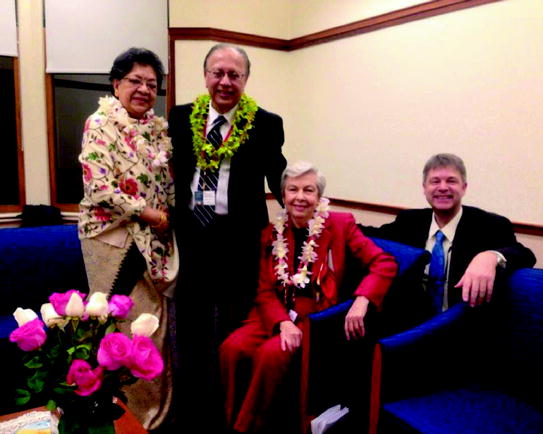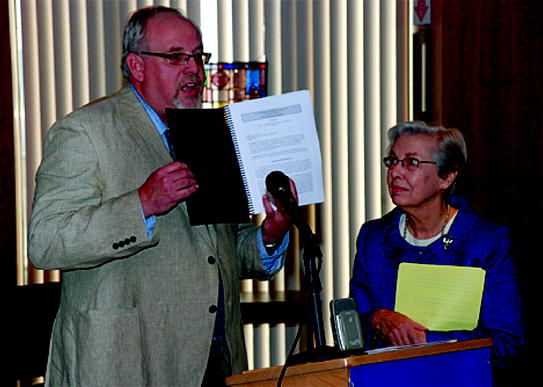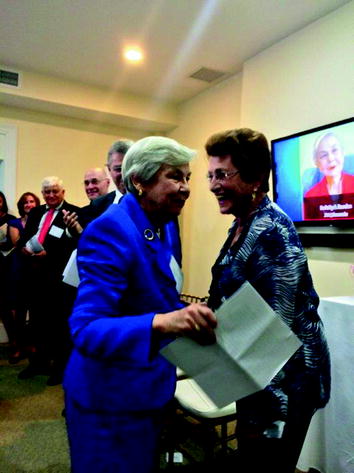Reflective Pedagogy, Cosmopolitanism, and Critical Peace Education for Political Efficacy

Class photo of Gender, Peace and Security course at the UNESCO Chair in the Philosophy of Peace at Jaume I, Castellon, Spain, 2007. BR front row. Source Personal photo collection of the author
The concerns that produced the lamentation, indeed, evolve from some of those that informed earlier publications and the work they reflected, yet they are far more infused with deeper worries about the socio–political climate in which civility and integrity were in little evidence, and decisions and policies on war and peace made with little or no reasoned public consideration. Critical thinking as advocated by peace education is not in evidence in the exercise of the franchise or any other citizen responsibility. The essay also up–dated the critique of the university as put forth in “The Knowledge Industry;” in this case in terms of the academy’s failure to rise to the crisis of reason. Nor did I find peace education blameless, sometimes also failing to eschew ideology in favor of authentic critical reflection. I see in today’s surveillance policies rationalized by security interests, poverty tolerated as fiscal responsibility, and denunciation and disrespect as the language of political difference; and in some cases the resort to violence as tool of domestic politics to threaten most of what we seek to achieve in peace education as preparation for citizenship. I am more convinced than ever that it is our ways of thinking that stand most in need of transformation; that further developing our capacities for reflective inquiry is one way to approach that transformation. And I am learning that cosmopolitanism provides the philosophic and normative base that may be the practical incarnation of the transformation.
Cosmopolitanism brings a perspective to peace education that I have only lately come to see as the normative form of holism for which I was intuitively searching through the years of seeking more conceptual and philosophic clarity on comprehensive peace education. As the selections related to the role of human rights education included in this volume indicate, I had come to be an advocate of Freirean critical pedagogy. But as is evident, too, in those selections, I continued to seek a more widely conceptualized framework. Had the learning come earlier in my career, it would likely have presaged much of my future efforts. This conceptual breakthrough is, like others in my professional formation, the consequence of learning from a respected close colleague; in this case Dale Snauwaert, whose scholarship on cosmopolitanism has so enriched the field. Dale and I have had a fruitful learning relationship since our days as simultaneous visiting professors at Colgate University. I deeply valued his validation of the conceptualization of reflective inquiry and welcomed the opportunity to delve more deeply into the relevant pedagogical processes offered in this exchange in which we sought to model as closely as possible in print, the learning possibilities integral to dialogue. The dialogic element of learning communities engaging in the various forms of reflective inquiry may well be the fuel that propels the transformation of our thinking. Certainly this exchange has considerably pushed forward the continuous changes in our own thinking. Were I to be able to assign but one piece of my writing to students, it would be this dialogue with Dale Snauwaert.1
Betty A. Reardon
April 2, 2014
In a recent publication entitled “Meditating on the Barricades: Concerns, Cautions and Possibilities for Peace Education for Political Efficacy” Betty Reardon reflects on the state of peace education and offers a brilliant reaffirmation and further elaboration of the central importance and nature of a pedagogy of reflective inquiry for a comprehensive/critical peace education.2 Betty Reardon is an internationally renowned peace scholar and peace educator. She has been instrumental in the establishment of peace education institutions and programs around the world. Her work has defined the fields of peace studies and peace education.3


With Dale Snauwaert at the opening of the archive of BR’s work at the University of Toledo, 2009. Source Personal photo collection of the author
The purpose of this paper is to discuss her recent assessment and elaboration. In particular, the connection between cosmopolitanism and reflective pedagogy will be explored in greater detail, in addition to the posing of further questions for inquiry related to the relationship between dialogue, conceptual clarity, philosophical frameworks, diversity and reflective pedagogy.
13.1 Dale Snauwaert’s Reflections
Reardon situates peace education within the broader issue of citizenship and argues that peace education should be fundamentally concerned with the development of the political efficacy of future citizens. She writes:
Starting from the long held premise that peace education is education for responsible global citizenship, our task in general terms is educating toward political efficacy in the formation and pursuit of citizen action and public policy intended to move the world toward the achievement of a more just and less violent global order.4
Political efficacy is not necessarily a matter per se of what to think; it is more fundamentally about how to think. In other words, political efficacy is dependent upon “sound political thinking,” “for inquiry into obstacles and possibilities for transformation should form the core of peace pedagogy, so as to provide learning in how to think and to act for political efficacy in peace politics…”5 Learning how to think concerns conceptual clarity, thinking within conceptual frameworks, posing questions, rationality, and most importantly reflective inquiry.
From an ethical perspective, political efficacy is grounded in the normative framework of cosmopolitanism, defined by Reardon as the value of “universal moral inclusion”6 grounded in respect for human dignity. She maintains that cosmopolitanism “best articulates the normative goals of our evolving field… the vision of universal moral inclusion that inspires the normative goals of peace education; a vision in which all human beings are accorded respect of their fundamental human dignity.”7 From this perspective, political efficacy is driven by the values of universal human dignity and moral inclusion.
Political efficacy thus involves “complex learning that requires pedagogies of multiple forms of reflective inquiry.”8 Peace learning and thus reflective practice is both cognitive and normative, pertaining to both the discernment of the sociopolitical world and value-based ethical assessment. Reardon’s basic presupposition is that political efficacy, the capacity to engage in transformative political action, is contingent upon the cognitive, ethical, and self-reflective capacities of citizens. Transformative action is a reflective-practice. Being a reflective practice it requires both the capacity and space for authentic open reflective inquiry in dialogue with the diverse range of other citizens. It requires “authentic open inquiry.” Reardon writes: “All peace learning at whatever academic level in whatever learning setting should be directed toward developing a range of reflective capacities relevant to political efficacy.”9
Reardon articulates three forms of reflective inquiry: critical/analytic; moral/ethical; and contemplative/ruminative. Critical/analytic reflection pertains to the discernment of power, an understanding and critique of the functioning of social institutions, knowledge and analysis of the structural dimensions of social life, and the impact of power, institutions, and structures on the quality of life. Reardon writes: “It is more directly political than the other two as its primary inquiry is into the nature, functions and distribution of power, the political institutions and social structures through which it is mediated and the consequences of these circumstances to human lives and relationships.”10


With Cora Weiss, President of the Hague Appeal for Peace at the El-Hibri Peace Education Prize Ceremony, 2013. Source Personal photo collection of the author
“Moral/ethical reflection addresses questions of fairness and moral inclusion with queries on issues of the goodness, distribution of advantage and harm, the justice and potential detriments and benefits of relationships, effects upon quality of life and the biosphere. Transformative moral/ethical reflection is guided by normative principles consistent with the values designated as the indicators of what is considered to be socially good and humanly enhancing.”11 Moral/ethical reflection involves the principled application of practical reason to the many moral and ethical issues inherent in the political and social realms. She makes an important distinction between the moral as precepts to guide life and the ethical, as principled practical reason. It is the latter that is most fundamental to political efficacy and the education of cosmopolitan citizens.
“Contemplative/ruminative reflection is a process consistent with the breadth of thought inspired by a cosmopolitan view. It is a wider sphere of reflection, which facilitates perception of the full scope of the complex systemic, dynamic interrelationships comprising our natural and humanly constructed environments. It makes space for affect and intuition as more complex forms of reason. It is the deeper thought through which persons gain the forms of self-awareness from which to develop capacities to lead not only humanly fulfilling lives, but even more to the point, to live personally, socially and politically so as to be agents of social and political transformation.”12 Contemplative reflection is thus conceived as critical self-examination regarding our internal motivations and moral capacities. It pertains to a reflection on what is meaningful and valuable. It is essential for ethical commitment and for the empathic moral response to the dignity of other persons.
Although Reardon does clearly posit the interconnection between the three forms of reflective inquiry and cosmopolitanism, arguing that they constitute capacities that make possible the transformative action necessary for the actualization of the cosmopolitan ideal, I believe that the relationship between cosmopolitanism runs even deeper than Reardon suggests. Reflective inquiry is not only a means to the actualization of cosmopolitanism; reflective inquiry is an ethical requirement, and thus a constitutive element, of cosmopolitanism. It can be argued that the cosmopolitan ideal of universal respect for human dignity and moral inclusion itself necessitates open reflective inquiry and in turn its reflective capacities, and that the three forms of reflective inquiry mirror the three dimensions of cosmopolitanism.
The ethical dimension of cosmopolitanism consists of universal respect for human dignity and moral inclusion. This ethic proclaims the equal inherent dignity and value of each and every human being as a human being. This value of universal moral equality in turn bestows moral standing to each person. Each person is a morally equal member of the human moral community and thus each person has a right to equal moral consideration. As a matter of basic justice, moral consideration includes recognition (recognition of all persons as moral equals, regardless of difference), fairness (impartial treatment and respect for persons), and inclusion (all persons have equal standing (membership) in the moral and political community). The ethical imperative of cosmopolitanism mandates that we see the other as a person; it demands that we transcend the objectification of persons in favor of the recognition of their: humanity. Thus, woven into this dimension is the ethical requirement of reflective inquiry into the moral standing of persons and the forces of objectification that deny them their humanity and rightful standing in the moral community.
The political dimension logically follows from the ethical. If all human beings are morally equal, then they possess a right to have their interests equally considered in the political process as well as the right to participate equally in that process. The rights to equal political consideration and equal political participation constitute political equality. The aim of political equality is the institutionalization of individual political empowerment. Critical/analytic reflection is a constitutive imperative of political equality and thus of cosmopolitanism, for the sustainable institutionalization of individual political empowerment is based upon individual awareness and knowledge of one’s rights to consideration and participation and the internal capacities to effectively participate in the political process.
The self-reflective, contemplative dimension of cosmopolitanism consists of the internal moral resources of the individual that provide the consciousness and capacity to be aware of and to ethically respond to the inherent dignity of every human being. Cosmopolitanism thus entails an internal disposition and capacity to respond to others empathetically with respect and care. It also entails a moral commitment to the ideals of human dignity and inclusion, which makes cosmopolitanism a deliberative choice. These dispositions emerge out of critical self-examination and contemplative reflection wherein their meaning and value are contemplated and affirmed by each individual citizen.13
In addition, if we take into consideration the almost incomprehensible scope of human diversity, the ideals of universal human dignity and moral inclusion, including the principles of recognition, inclusion, and fairness as well as equal political consideration and participation, require open impartial public deliberation.14 It requires that everyone submit their values and ideas to open impartial scrutiny as a test of their objectivity, value, and validity. Given that our perspectives tend to be confined, exposing our positions to open impartial scrutiny is a means of transcending our positional confinement. This call for impartial scrutiny is central to Reardon’s advocacy of reflective inquiry and her critique of the narrowness and partiality of the positioning of critical, reflective pedagogies as ideologies rather than as methods of inquiry and educational liberation.
My main point is that open reflective inquiry in general, and the three forms of reflective inquiry in particular, are constitutive elements of the cosmopolitan ethic. The cosmopolitan ethic is instantiated educationally through the pedagogical application of the three forms of reflection. From this perspective, peace education is the enactment of the cosmopolitan ethic. By enacting it pedagogically the school becomes the incubator, and the peace educator the midwife, of a cosmopolitan society.
Reardon offers a very insightful analysis of the nature of reflective inquiry. However, further questions into the nature of reflective inquiry can be posed as a means of further developing a reflective perspective:
1.
What is the general methodological orientation of reflective inquiry? Is reflective inquiry a process of discovery, invention, or interpretation?